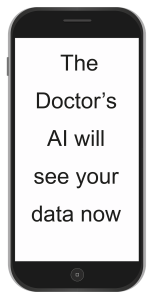
Such ideas may sometimes have some merit, but this consumerist perspective is simplistic about complex human experiences and needs. Good healthcare is not merely a pyramid of procedures or an information-instruction hub, although it must provide these. Good healthcare involves far more than fixing or preventing. It is, particularly in primary and mental healthcare, also about skilled personal guidance, support, containment, interpretation, accompaniment and comfort. These bespoke skills constitute the art and heart that nourish medical practice – for both patients and practitioners.
There is a paradox here that has an analogy with well-functioning families. The care we will take of, and for, ourselves generally reflects that kind of care we have received in our families. This is also often the case in healthcare: all kinds of healthcare responses, compliances, outcomes and indices are better when people feel well cared for – we transform care into growth and healing. This has been repeatedly demonstrated for all kinds of conditions and procedures, from the minor to the most serious. Equally well demonstrated is that such care best comes from personal continuity, where bonds of familiarity, understanding and trust can develop. We often reap what others have sown in us.
Yet those that plan and govern our services seem increasingly oblivious of such things. Corrigan’s ideas are likely to be implemented: our NHS will far exceed digital enhancement. Like our utilities, banks and supermarkets it will be digitally modelled, commanded and channelled. Unless we are very careful, our already grievous human losses of personal continuity of care will accelerate.
Digitally delivered information, advice and conduits can certainly powerfully expedite procedural, institutional medicine … but then so easily and utterly displace the kind of personal healthcare that should be an indispensable ally.
Dr David Zigmond
Executive Committee, Doctors for the NHS
You can read more of David’s work on his website

No comments yet.